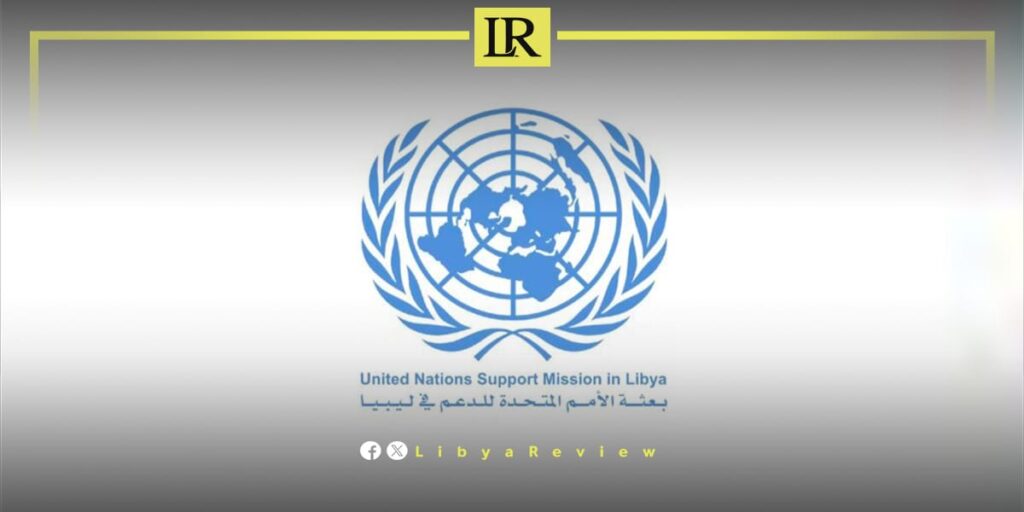The United Nations Support Mission in Libya (UNSMIL) has reaffirmed that it has no authority to impose or dismiss governments in the country, stressing that its role is to assist Libyans in overcoming the current political deadlock and holding inclusive national elections to restore institutional legitimacy and unify state institutions.
In a statement, UNSMIL said there had been widespread misunderstanding regarding the application of Chapter VII of the UN Charter in Libya. The Mission clarified that its mandate is derived from Security Council Resolution 2755 (2024), which falls under Chapter VI — focusing on the peaceful settlement of disputes.
Therefore, the Mission’s role is limited to using its good offices and mediation capacity to facilitate a Libyan-led and Libyan-owned political process aimed at ending the crisis and paving the way for elections.
UNSMIL further explained that Libya falls under Chapter VII of the UN Charter in only a few specific areas, including the arms embargo and financial measures such as asset freezes, travel bans, and financial sanctions.
It noted that Security Council Resolution 2769 (2025), which imposes sanctions on Libya, is indeed governed by Chapter VII. This framework, managed by the Security Council’s Sanctions Committee, covers restrictions on arms transfers, the freezing of sovereign wealth assets, and measures against the illegal export of oil.
The Mission reiterated that while these sanctions fall under the enforcement mechanisms of Chapter VII, the political process itself is not subject to it. Instead, UNSMIL’s approach remains firmly grounded in dialogue, reconciliation, and Libyan ownership of any future political settlement.
The clarification comes amid growing debate within Libya about the UN’s role in shaping the country’s political landscape, as rival factions continue to dispute legitimacy and control over state institutions.


